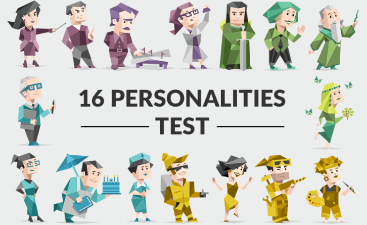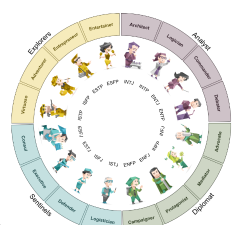How Accurate Are Personality Psychology Tests?
Personality tests have become quite popular in recent years, helping people understand their own personality traits. However, is it truly reliable to judge a person's psychological state based solely on a single test result?
Personality tests have become quite popular in recent years, helping people understand their own personality traits. However, is it truly reliable to judge a person's psychological state based solely on a single test result?
Jungian Personality Classification

Based on individual strengths and abilities, as well as differences in introversion and extroversion, Jung categorized humans into eight distinct groups: Extraverted Thinkers, Introverted Thinkers, Extraverted Feelers, Introverted Feelers, Extraverted Intuitions, Introverted Intuitions, Extraverted Sensings, and Introverted Sensings. These classifications provide a solid theoretical foundation for subsequent personality assessments, allowing us to understand and comprehend individual personality traits from multiple perspectives.
The High Popularity of the MBTI
Numerous assessment tools have been developed based on Jungian personality theories, but the MBTI is particularly well-known. This tool is easy to use and its results are clear at a glance, allowing test-takers to quickly identify their personality type without requiring in-depth interpretation or excessive reflection. This makes it unique among personality assessment methods and has earned it widespread popularity.
Controversy in the Academic Community regarding the MBTI
The MBTI model remains controversial within the field of personality psychology. Some question whether personality types can truly be categorized into 16 types, with some scholars believing this classification is too simplistic and direct. After all, human personalities are diverse, and defining them using fixed patterns inevitably has limitations. This phenomenon has prompted further research into the scientific validity of the MBTI.

Reasons for the Accuracy of the Test
Many believe that MBTI results are highly accurate, a perception driven by a variety of factors. Only those who believe their results are accurate share them, while inaccurate results are rarely discussed, leading to the misconception that all tests are accurate. Furthermore, the accuracy of a test depends largely on subjective judgment. If a test result resonates with one's inner self, the test-taker may perceive it as accurate, but this does not necessarily mean that the test truly reflects a person's personality traits.
Risks of MBTI Application
The MBTI, along with many other personality assessment tools, is often used in areas such as recruitment. However, from a psychological perspective, hiring decisions cannot be made based solely on the results of a single test; a comprehensive analysis of a person's past profile is required. Especially in the process of blind dating or choosing a spouse, such tests often fail to reach the unconscious level, and the error may increase, so the risk of making decisions based on the test results also increases.
